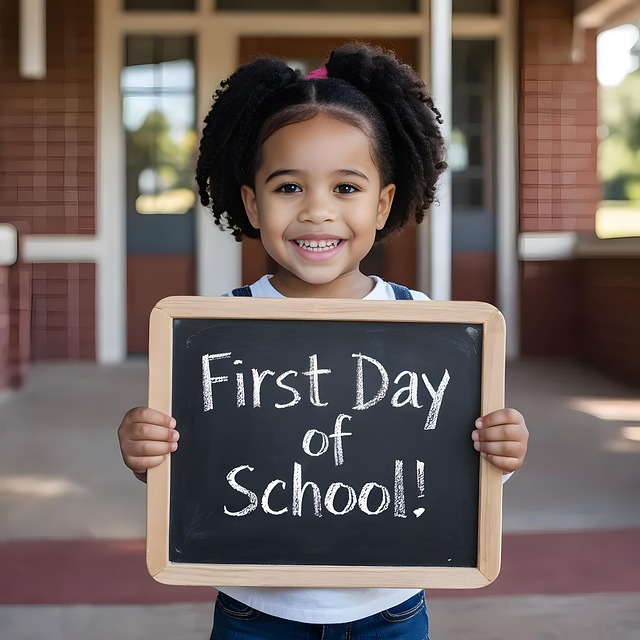Are Children Less Ready for School — Or Are Expectations Too High?

In recent years, there has been growing concern among teachers, parents, and policymakers that many children are starting school without the skills they need to succeed. Reports and headlines often highlight worrying statistics — from children struggling with speech and language delays to Reception teachers spending more time on basic care than on learning.
But is this a case of children being less ready for school than previous generations? Or have the expectations placed on our youngest learners simply become harder to meet?
The truth is complex — and the answer probably lies somewhere in the middle.
Are Children Less Ready for School?
Many educators report that more children are starting Reception without the developmental skills traditionally expected at this stage. A recent survey found that around one in three children entering school in England are not considered school-ready, with this rising to nearly 45% among children from disadvantaged backgrounds.
Teachers point to several contributing factors:
- Language delays: Speech and communication challenges have significantly risen since the pandemic, with many children struggling to express themselves clearly.
- Physical development gaps: More children arrive still in nappies or unable to put on coats and use cutlery independently, creating extra challenges for staff.
- Social readiness: Many children find it harder to play cooperatively, manage emotions, or follow instructions.
Research suggests that changes in early childhood experiences — including reduced social interaction during lock downs, increased screen time, and limited access to outdoor play — may all be influencing children’s development.
Or Are Expectations Too High?
On the other hand, some argue that today’s children aren’t less capable — the bar has simply shifted.
A generation ago, children weren’t expected to arrive at school being able to write their name, sit still for long periods, or recognise phonics sounds. Learning those skills was what school was for. Now, many parents report feeling pressure to prepare their children academically before they even put on their first school uniform.
This year, the government introduced a “school readiness checklist” to guide families, including milestones such as using cutlery, recognising names, managing emotions, and focusing attention. While designed to help, for some families this can feel daunting — particularly when every child develops at their own pace. It also doesn’t take into account how additional needs may affect this development and can lead to parents feeling they have ‘failed’ before their child has even started.
Critics argue that by placing so much emphasis on early attainment, we risk rushing children through their natural stages of development. A child who thrives through imaginative play and exploration might be labelled “behind” simply because they haven’t ticked enough boxes on a list.
How Parents Can Support School Readiness?
Regardless of where you stand in this debate, one thing is clear: parents and carers play a powerful role in helping children feel prepared, confident, and curious as they start school. You don’t need expensive resources or formal lessons — small, everyday activities can make a huge difference.
1. Embrace Outdoor Learning
Time spent outdoors offers children rich opportunities to develop the physical, emotional, and social skills they’ll use in school:
- Let children climb, run, and balance to strengthen coordination and confidence.
- Explore nature together — collecting leaves, watching insects, or splashing in puddles sparks curiosity and problem-solving.
- Play outdoor games like hide-and-seek or simple team challenges, which encourage turn-taking, resilience, and cooperation.
Even short daily walks, visits to the park, or outdoor play in the garden can support both well-being and readiness.
2. Build Everyday Skills Together
Children learn best when they’re actively involved. Building independence and confidence through shared tasks makes school routines smoother:
- Help with cooking or preparing snacks — stirring, chopping soft fruit, or setting the table improves fine motor skills and introduces early maths concepts like measuring and counting.
- Do simple household jobs — tidying toys, pairing socks, or watering plants builds responsibility and self-esteem.
- Talk while you do — narrating your actions (“I’m folding the towel; now it goes on the shelf”) helps develop vocabulary and understanding.
These everyday activities provide natural opportunities for language-rich learning and problem-solving, without feeling like “formal lessons.”
3. Encourage Self-Care and Independence
Teachers often report that one of the biggest challenges when children start school is supporting children with personal care and emotional regulation. Giving children time to practise these skills at home can make a big difference:
- Self-care routines: Practise washing hands, putting on shoes, zipping coats, and using the toilet independently.
- Managing feelings: Talk about emotions, role-play calming strategies, and encourage children to ask for help when they need it.
- Building confidence: Celebrate small successes — whether it’s pouring their own drink or remembering to hang up a coat — to develop pride in their growing independence.
Developing these foundations helps children feel capable and secure, which in turn supports learning and social interaction at school.
Finding the Balance
The conversation around school readiness shouldn’t be about placing blame on families, teachers, or children. Instead, it’s about recognising that both children’s developmental needs and educational expectations have shifted — and working together to bridge that gap.
By combining supportive policies, clear communication from schools, and simple, playful strategies at home, we can create a stronger foundation for children’s learning and well-being.
Starting school should be an exciting adventure — and with the right tools and support, every child should feel ready to take that first step.
Image by Syeda Saira from Pixabay
